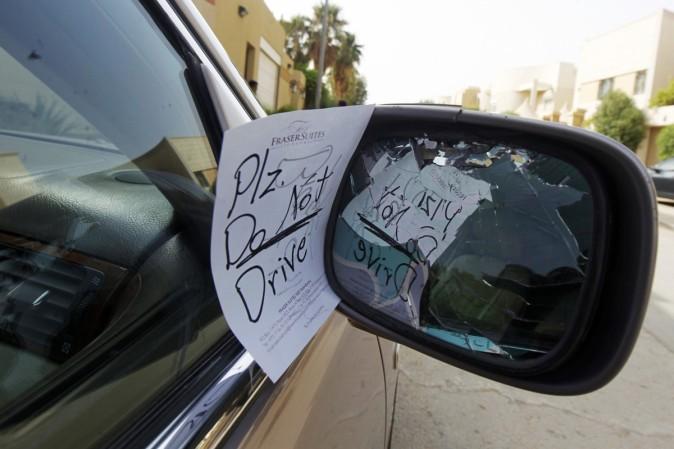Saudi Arabia criminalised domestic violence in 2013 and did not allow women to drive cars until June 2018. Saudi Crown Prince Muhammad bin Salman has always wanted to be viewed as a women's rights reformer and has undertaken several steps to ensure that, including glossy media campaigns and slick PR mechanism.
However, one of the latest accounts by Reem Abdellatif, a public speaker and a foreign correspondent, also shatter to pieces the image that the ruling elite of Saudi Arabia has been so trying to propagate.

"There's a time and place for everything. Here, I break my silence on what it was like working in Saudi Arabia in close proximity to the 'ruling elite.' The unhinged methods I witnessed to break and disempower women were disturbing and frightening," she posts on her social media.
There's a time and place for everything. Here, I break my silence on what it was like working in #SaudiArabia in close proximity to 'ruling elite'. The unhinged methods I witnessed to break & disempower women were disturbing and frightening. #FreeLoujainhttps://t.co/G9x7ijy5iu
— Reem Abdellatif - ريم عبداللطيف (@Reem_Abdellatif) December 17, 2020
The narrative also includes references to the infamous instances of women who were imprisoned in Mohammed bin Salman's Saudi Arabia; Nassima al Sadah, Loujain Al-Hathloul and Samar Badawi. These women's rights activists and campaigners have been imprisoned for their political ideologies and campaigning for women's rights.
Nassima al Sadah, Loujain Al Hathlol & Samar Badawi
It was last year that the case of Loujain Al Hathlol was widely reported and taken up by human rights organisations. The now 31-year-old Hathlol was once pulled over for driving in the neighbouring UAE before being deported back to Saudi Arabia. She has been detained several times for defying the driving ban on women. Thus goes the background of a woman who is regarded as one of the powerful women rights campaigners across the world, but regarded as a threat back in Saudi Arabia.
In 2018, Hathloul was arrested with 10 other women who, it is widely believed, were put on trial by the authorities to ensure that other women can't think of doing the same. According to Amnesty International, they were held incommunicado for a month and subjected to tortures like electric shocks.
On July 30, 2018 security forces arrested women rights campaigners Samar Badawi and Nassima Al Sadah, as a part of a much wider crackdown on women activists. According to the information received and also published by The Observatory for the Protection of Human Rights Defenders (a partnership of FIDH and World Organisation Against Torture) the detention was arbitrary. The women were detained for their peaceful defence of women's rights but were charged on vague security charges.

They continue to be in detention
Last month, seven European human rights ambassadors criticised Saudi Arabia over the continued detention of women's rights activists, including Loujain al-Hathlol. Earlier this month, a Saudi court referred their case to the Specialised Criminal Court for terrorism and national security cases, according to a statement from her family and supporters. The case of Samar Badawi too has been referred to the special court.
Recently an Amnesty International representative for the Middle East, Lynn Maalouf, said in a statement to a media house that the Specialised Criminal Court is an institution used to silence dissent and was notorious for issuing lengthy prison sentences following flawed trials. He also said their continued detention was yet another sign that Saudi Arabia's claims on human reforms and women rights were more of lip service for image building.
Why women flee Saudi Arabia
It's not difficult to see why every other day, accounts of women who flee Saudi Arabia surface on various media platforms. Each story sheds new light on the plight of women trapped under the abusive and fundamentally unconstitutionally male guardianship system in Saudi Arabia.
The fact that women face systemic discrimination and rampant inequality, that leaves them vulnerable and exposed to domestic violence and abuse, is what makes them flee the country. A lot of times these are not just desperate but also dangerous attempts to escape the abuse.
What is male guardianship system?
Not difficult to fathom, under the male guardianship system, a man controls a Saudi woman's life from her birth until her death. Thus every Saudi woman must have a male guardian, usually a father, or a husband, but if neither are available then a brother or a son who makes all the important decisions of her life. Thus women never really become independent adults in Saudi Arabia and are treated as permanent legal minors.

















